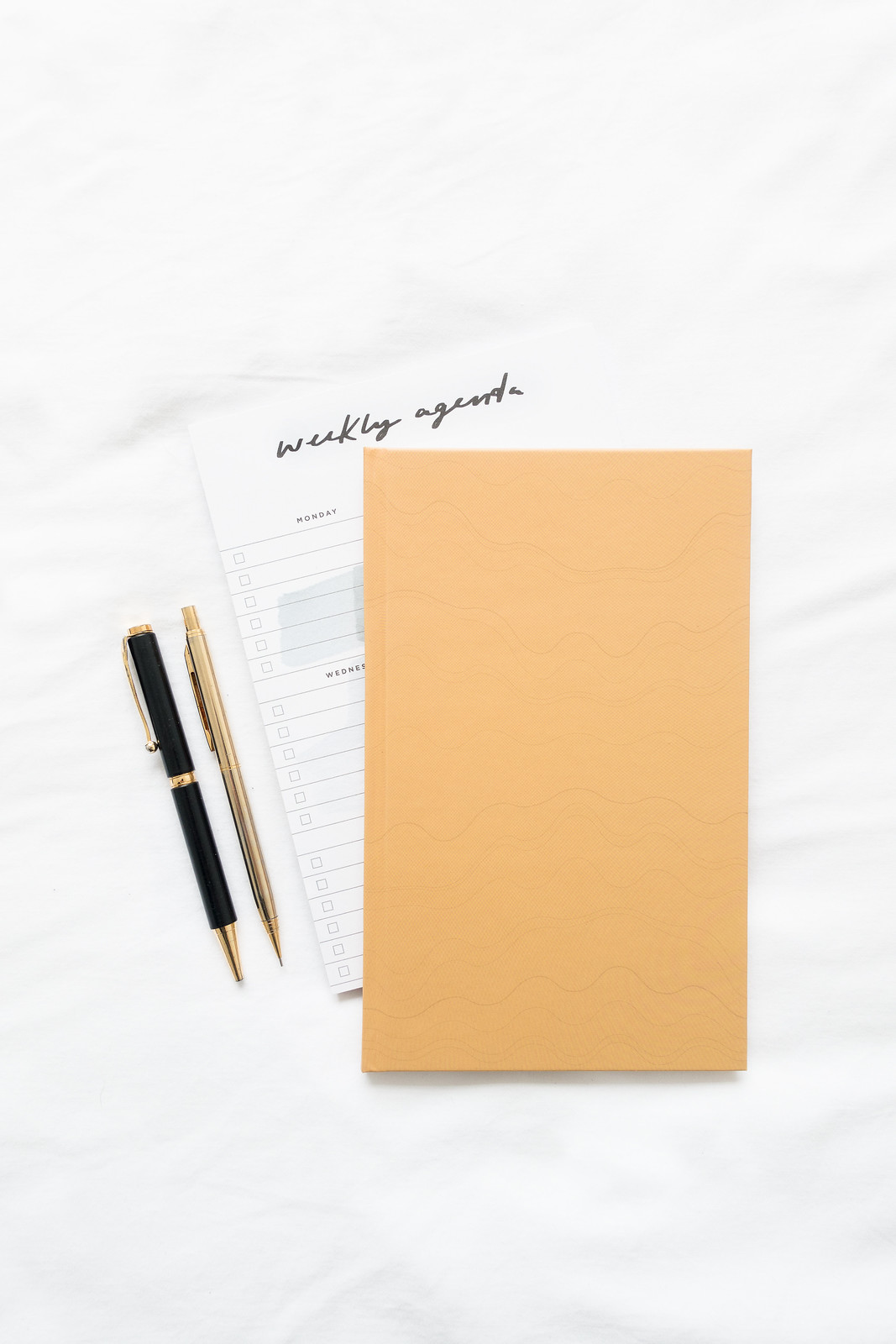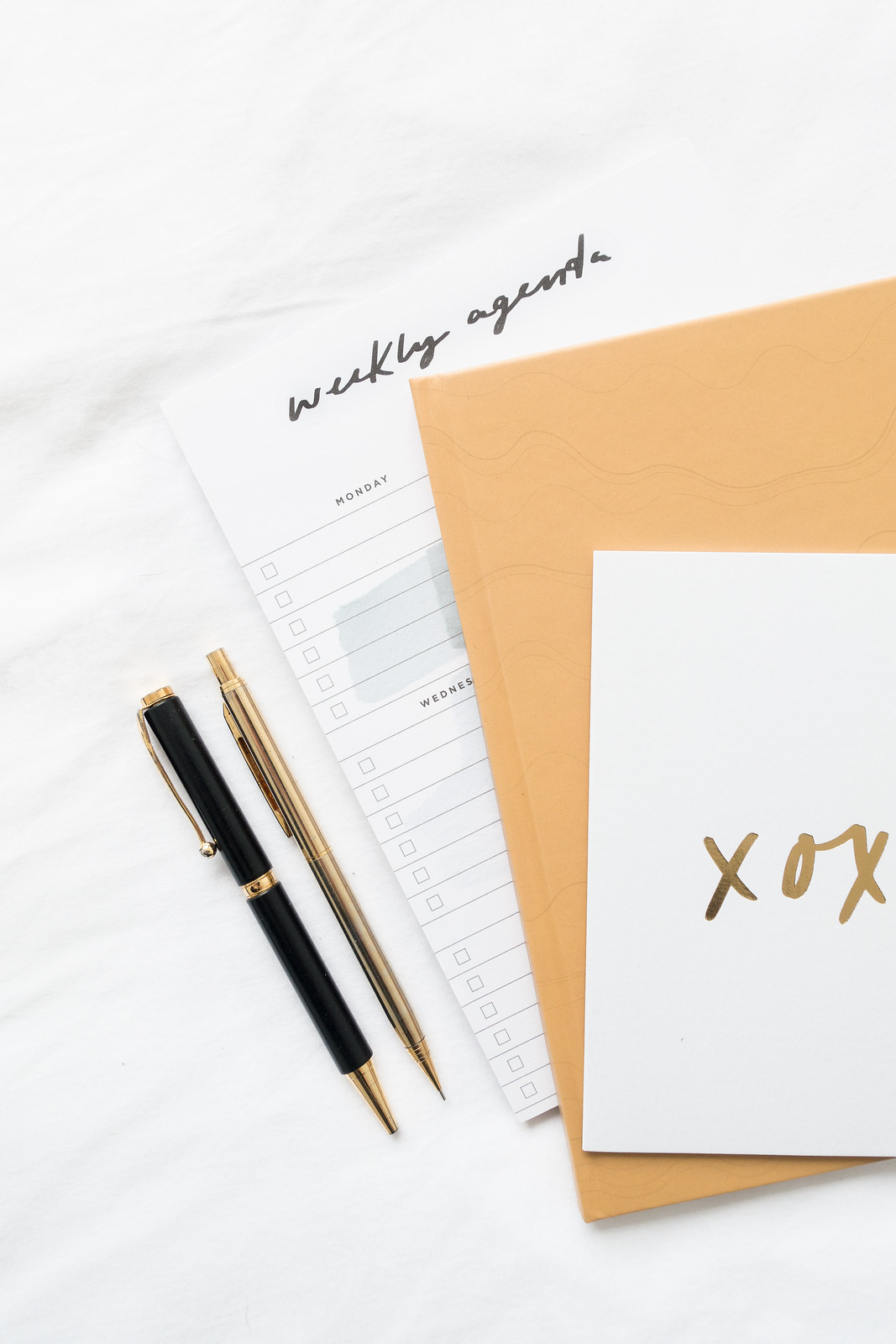
When you're working hard on adopting eco-friendly habits and developing a low waste routine, the constant flow of junk mail in your letterbox can feel immensely frustrating. Why do you have to deal with all these letters, flyers, and takeout menus, none of which you gave permission to be dropped at your door?
A while back I made opting out of junk mail my main focus and I found it to be surprisingly rather easy to do. Within a month I'd stemmed the flow of unsolicited mail and reduced it to zero. Yes, zero. I wanted to share how I did it (along with a few extra steps you could take) so you too can opt-out of junk mail and deal with paper clutter.
The quick version (if you don't have time to read this lengthy post!) I put a 'No Junk Mail' sign on my letterbox and opted out of the Royal Mail Door-to-Door Service. That stopped almost all junk mail except catalogues and magazines I'd (unknowingly) signed up for, the odd promotional postcard or flyer from brands, and a few pieces of mail for the previous tenants (who we knew and could deal with personally). I put an end to the unwanted deliveries by emailing each company's customer service asking them to stop sending mail and to remove my details from their system. It worked; I was junk mail free after a month!
Stopping Junk Mail
Use A 'No Junk Mail' Sign
Write or print a sign that says "no junk mail" and/or "addressed mail only" and post it on your letterbox. You can order stickers although I think it's best to make your own. This will prevent around 50% of unaddressed adverts mostly from local businesses posting takeout menus, taxi cards, and leaflets through your door. I found a 'no junk mail' sign was incredibly effective, however, I've read that using a letterbox sign that tells deliverers what is and is not welcome through your letterbox can be even more helpful.
Opt Out Of Royal Mail Door-To-Door
A 'no junk mail' sign on your door will only prevent a handful of junk mail items that drop through your letterbox. The majority of unaddressed junk mail is delivered by Royal Mail and you'll need to opt out of their 'door-to-door' service to prevent it. To do this, complete and return the opt-out form by either downloading and printing yourself or requesting a copy from Royal Mail. Phone 0345 266 0858 or email d2d_enquiries@royalmail.com.
They try to scare you into not opting out by claiming you may not receive important information from local or national government publications but you will. Royal Mail has a legal duty to deliver this information and your addressed mail even if you opt out. It will not, however, stop mail addressed to 'the occupier'.
After you've sent off the form, you should stop receiving unaddressed junk mail within 6 weeks but the registration is only valid for two years so you'll have to opt out again before that time is up. You won't receive confirmation that your opt out form was received or a reminder to opt out again after two years.
Contact The Sender
An effective way of stopping junk mail is to contact the sender directly. The General Data Protection Regulation gives you the right to demand UK-based organisations stop using your personal information for direct marketing purposes. You can exercise your right to object and put a stop to unwanted emails, nuisance phone calls, and text messages. Exercising your Article 21 right to object to direct marketing means junk mailers must comply with your request or risk being reported to the Information Commissioner's Office. Your notice will have to be in writing (email is fine); save this template and use it when you need it. This won't prevent junk mail addressed to 'the occupier' though.
If you've given permission for an organisation to contact you–perhaps through a tick box on a website when shopping with them online or giving your details in store–you can still exercise your right to object. When you receive a catalogue or flyer from a brand, email to request they stop contacting you and remove your information from their system. Taking the time to do this with every piece of unwanted marketing you receive will drastically reduce the amount of physical and digital junk mail you receive.
Register With Mailing Preference Service
If you're receiving a lot of addressed junk mail, it helps to register with the Mailing Preference Service. It's a free service set up the direct marketing industry to help people who want to stop receiving junk mail. Registering yourself with this opt-out scheme will stop addressed junk mail but only from companies that are members of the Direct Marketing Association. The most helpful aspect of this service is it will prevent your details from being traded between companies.
Return To Sender
If you're receiving previous tenants mail who fail to collect it or have long since moved on, write 'return to sender' on the envelope and post it back. This informs the company or organisation that the person they're trying to contact no longer lives at your address. If you find a few pieces of junk mail are slipping through the net–perhaps your post person forgot or rude companies ignore your sign–don't recycle them (you probably can't anyway), return to sender. Addressed mail typically has a return address, write 'return to sender – junk mail' on the envelope and post it back. Unaddressed junk mail can be dealt with in a similar fashion by placing it in an unstamped envelope with a note requesting they respect your no junk mail sign in the future.

Reducing Paper Clutter
Dealing with paper clutter is an ongoing issue. There will always be someone trying to give you a receipt, instructions, invitations, business cards, or leaflets. But tackling it head on with a few daily habits can help prevent it from cluttering up your home.
Tackling junk mail. As soon as you receive mail, deal with it immediately whether that's by recycling, returning, or informing the sender you don't want to be contacted.
Say no. Avoid giving out details, like your address, if you can avoid it. Information is often traded and shared (sold?) to similar companies and organisations, which is how unsolicited mail arrives at your door.
Make use of notebooks. If you're struggling to find a purpose for yours, here are a few creative ways to make use of your empty notebooks.
Go paperless. Request your bills and statements are sent digitally instead of in the mail. For most accounts you can request to deal with them solely online.
Refuse printouts. If you don't need it, don't bring it home. When someone offers to print something you don't need, like a receipt, politely decline.
Take a photograph. When you need to store important or useful information like a business card or invitation, use your phone to take a photograph or scan it.
Pass it on. If you read magazines or newspapers, pass these on to someone else (or recycle them) when you're done. Don't allow them to take up space.
